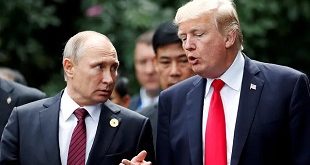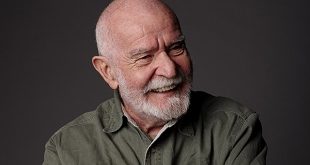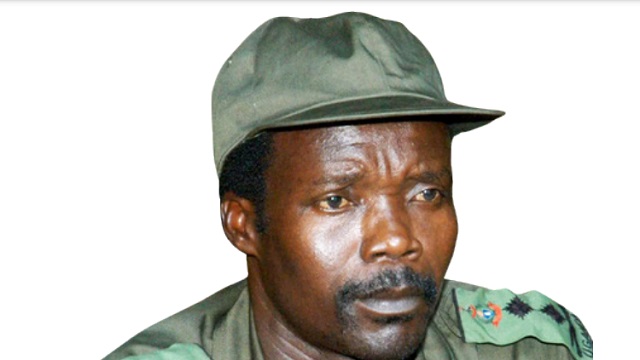
New moves in hunt for LRA warlord
COVER STORY | THE INDEPENDENT | At 63 years of age, Joseph Kony; the commander of the Lord’s Resistance Army (LRA) rebels, remains the longest running fugitive from the International Criminal Court (ICC) in The Hague. But his days on the run could end soon.
In the latest development, on Feb.24, the ICC Prosecutor Karim Kahn, was in Kampala and met President Yoweri Kaguta Museveni. Details of their meeting have not been revealed to journalists but they certainly centred on the latest developments in the Kony trial case. State House only released a general statement about niceties between the Prosecutor and President Museveni.
A month before this meeting, on January 19, 2024 Prosecutor Kahn had filed before the ICC the Document Containing the Charges against Kony. Kahn had been pursuing this unprecedented move arguing that the hearing could offer a “meaningful milestone” for victims and to present the depth of evidence gathered against Kony by his office.
It is, therefore, likely that Kahn was in Kampala to update Museveni on the significance of this move. The two could also be hatching plans regarding what could follow Kahn’s presentation of the document of charges against Kony before the ICC.
It should be recalled that this case against Kony started after the government of Uganda, under President Yoweri Museveni, referred it to the ICC after Kony fled outside the borders of Uganda; to South Sudan and the DR Congo jungles.
Kony and his band of rebels ravaged northern Uganda for over two decades from 1987 to about 2009, killing hundreds of civilians, abducting and raping others, and causing about 2 million people to flee their homes into Internally Displaced Peoples (IDPs). Another approximately 66,000 children were forced to become child soldiers.
The Office of the Prosecutor of the ICC on July 29, 2004 opened an investigation concerning the situation in northern Uganda in relation to alleged crimes against humanity and war crimes committed by Joseph Kony and four other commanders of the Lord’s Resistance Army (LRA).
A few months after the Office of the Prosecutor opened its investigations, the ICC on May 6, 2005 issued international warrants of arrest against five top LRA commanders namely, Joseph Kony, Raska Lukwiya, Okot Odhiambo, Vincent Otti, and Dominic Ongwen.
Raska Lukwiya, Okot Odhiambo, and Vincent Otti have since died and the proceedings against them were terminated following their death. Meanwhile, Dominic Ongwen was captured and tried by the ICC and sentenced.
New moves for arresting Kony
So why is there now an urgency to confirm charges against Kony in absentia? Could Kony’s run from the long arm of justice finally be coming to an end?

Joseph Kony has for a long evaded prosecution from the ICC by hiding in the jungles of the DR Congo and Sudan. Most reports suggest he has mainly campaign in the volatile Darfur region of Sudan.
But his LRA is no longer the formidable band it was before that could loot and hunt and trade in ivory. Some reports indicate that Kony is physically weak.
It should also be noted that a confirmation of charges hearing is not a trial of Joseph Kony at the ICC. It is a public preliminary hearing during which judges assess and decide whether or not to confirm all or any of the charges brought by the Prosecutor against Kony.
If any of the charges are confirmed, the case can be submitted for trial before other ICC judges but only in the presence of the accused, Kony. There is no trial in absentia according to the ICC Rome Statute.
The Rome Statute allows for a hearing on the confirmation of the charges in the absence of a suspect. But this is only possible when: the suspect has fled or cannot be found, all reasonable steps have been taken to secure his or her appearance before the Court, and all reasonable steps have been taken to inform the suspect of the charges and to notify the suspect that a hearing to confirm those charges will be held.
It has been argued before the ICC that advancing proceedings against Kony notwithstanding his fugitive status for 17 years would “demonstrate that judicial proceedings will not be thwarted by attempts to evade justice”.
Significantly, Prosecutor Kahn also argued that proceedings with hearing of the confirmation of charges against Kony would give interested parties an urgent reason double efforts to apprehend Kony. It also means that if hearing of the confirmation of charges against him is finalised, if Kony is apprehended, he can be taken straight to trial.
In the words of the prosecutor, proceedings with hearing of the confirmation of charges against Kony is “in preparation for a potential trial, and hope that it will revive the willingness of States to locate and apprehend Kony”.
According a commentary on the case by an international law expert, one of the reasons for allowing this rare prosecution move by the ICC was that “the Court was satisfied a good cause existed because a confirmation of charges would remind the international community that Mr. Kony was wanted and could reinvigorate efforts to bring him before the Court as well as give victims a platform to voice views and concerns”.
Several efforts have been ongoing to apprehend Kony. In 2022, the U.S., through its embassy in the Central African Republic, published a warrant offering up to US$5 million for information leading to the capture of Kony.
The U.S. which had previously announced the bounty in early 2013 has been on Kony’s trail since the early 2000s, spending at least US$800 million on efforts to bring him to justice.
President Museveni has also been encircling Kony and encouraging his fighters, including his sons, wives, and other close relative to break ranks.
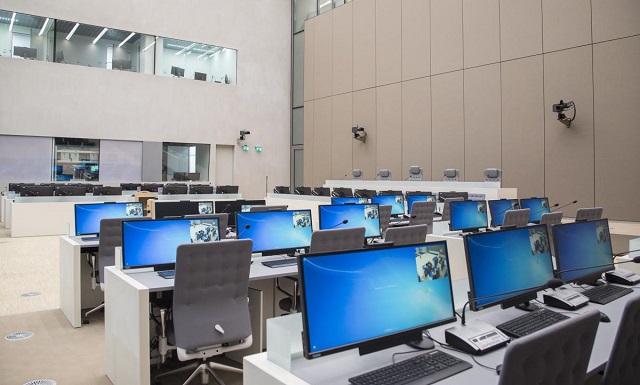
President Museveni has previously granted a scholarship to Kony’s eldest son, Moses Komakech, to attain a Bachelor’s Degree in Economics from Ndeje University.
In November 2023, Museveni publicly welcomed one of Kony’s sons called Ali Saloongo Kony and Kony’s former “wife” Cecilia Akullu at State House Entebbe shortly after their return from Kony’s hideouts.
Saloongo Kony, a former commander in the LRA rank defected from his father’s rebellion campaign at the rank of Brigadier in 2022. He returned home with his mother, wife, and three children in July 2023.
During their first meeting with President Museveni on August 25, 2023 at State House Entebbe, the head of state promised to help Kony’s family acquire land to carry out agriculture .
The meeting was also attended by the Pageya clan chief Rwot Yusuf Okwonga Adek and Bosco Odoch Olak, the Presidential Coordinator for Northern Uganda.
President Museveni is in a better position than before to apprehend Kony because of his cordial working relation with most of the governments in countries suspected to be a refuge for Kony including Sudan, the Central African Republic, and the DR Congo.
The charges against Kony
On Feb.07, the Office of Public Counsel for the Defence (OPCD) of the ICC issued a request related to the notification efforts and outreach activities of the court in relation to the Court providing notice of the charges for the purpose of a potential confirmation hearing in the absence of the suspect, Joseph Kony, at The Hague.
The OPCD noted that this was the first time since its inception that the court was contemplating this procedure and noted its responsibility to protect Kony’s rights before the court and ensure it sets the right precedent.
Earlier, on November 23, 2023, the Pre-Trial Chamber II issued a preliminary decision on holding confirmation of charges hearing in Kony’s absence.
At the time, the decision of the judges was hailed as a boost to the Prosecutor’s efforts to secure a hearing on charges they want to bring against Kony in his absence.
Following filing of the document of charges, the judges will have to ensure that all efforts are made to inform Kony of the case against him before they could agree to a confirmation of charges hearing in absentia.
It should be noted that all ICC suspects are presumed innocent until proven guilty, and they are entitled to legal representation when appearing before the Court. Since Kony remains a fugitive and is not appearing before the Court, the judges can appoint a lawyer to act on Kony’s behalf.
If he is caught and arraigned before the ICC, Kony will stand trial alone although he was previously charged with four others.
So far the ICC has terminated proceeding against three of Kony’s co-accused, namely Raska Lukwiya, Vincent Otti, and Okot Odhiambo. On 6 February 2015, the ICC Judges also severed the proceedings against Dominic Ongwen from the case of The Prosecutor v. Joseph Kony.
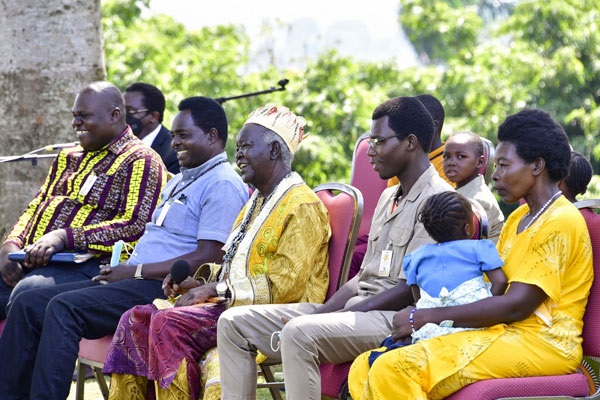
To arrive at this decision, the Judges argued that it was necessary to separate the case so as not to delay the proceedings against Ongwen who was already in the custody of the Court.
The trial in the case of Ongwen opened on December 06, 2016 and concluded in March 2020 after the submission of closing statements by the parties and participants. On February 04, 2021, the ICC found Ongwen guilty for a total of 61 crimes comprising crimes against humanity and war crimes, committed in Northern Uganda between 1 July 2002 and 31 December 2005. On May 06, 2021, the court sentenced Ongwen to 25 years of imprisonment, and he was transferred to Norway to serve his sentence.
However, the separation of Ongwen’s case from that of Kony means that they are now handled as different cases, with separate proceedings and handled by different ICC judges.
According to the ICC Prosecution’s submission of the Document Containing the Charges, Joseph Kony is suspected of 36 counts of war crimes and crimes against humanity, allegedly committed between, at least July 01, 2002 until December 31, 2005 in northern Uganda.
The allegations against Kony are that together with other LRA members, he jointly and through others directed attacks against the civilian population, murdering civilians, torturing, enslaving abducted civilians, pillaging and destroying property, and persecuting civilians on political grounds as well as based on their age and gender.
Listed among the crimes Kony allegedly committed are the attack of the LRA on Lwala Girls School in June 2003, several attacks on internally displaced persons’ (IDP) camps of Pajule, Abia, Barlonyo, Odek, Pagak, Lukondi, and Abok IDP camp.
The Prosecution also charges Kony perpetrated crimes against hundreds of women and against hundreds of children allegedly integrated into the LRA. He allegedly enslaved the women and children, exposed them to sexual slavery, forced women and girls into marriage, raped women and girls, forced them into pregnancy.
To push his case for hearings confirming the charges against Kony, Prosecutor Kahn argued that, in the absence of a real trial, the hearings would give victims the opportunity to voice their views and concerns. In general, victims can participate in the preliminary phase of a case represented by a lawyer,, according to the scope and modalities of participation decided by the judges.
The judges had in the past granted 41 persons victims’ status authoriz-sed to participate in the Kony case, and appointed as their legal representatives Paolina Massidda, Principal Counsel of the independent Office of Public Counsel for the Victims (OPCV), and Sarah Pellet, Counsel at the OPCV.
On Feb. 28, judges at the ICC granted reparations of more than 52 million euros (Approx. Shs220 billion) for the nearly 50,000 victims in the Ongwen case covered by the order. The beneficiaries include former child soldiers and children born as a result of rapes and forced pregnancies.
“Tens of thousands of individuals suffered tremendous harm due to the unimaginable atrocities committed” as rebel fighters led by Ongwen attacked four camps for displaced people in northern Uganda, said Presiding Judge Bertram Schmitt.
“Similarly, over 100 women and girls and thousands of children, boys and girls under the age of 15 suffered profound, multifaceted harm as a result of being kidnapped. Many were later subjected to sexual and gender based crimes and/or forced to serve as LRA soldiers, being kept in captivity with cruel methods of physical and psychological coercion,” he added.
He said victims would each receive 750 euros (Approx. Shs3 million) as a “symbolic award” while other reparations would come in the form of community-based rehabilitation programs.
Ongwen was not in court for the reparations hearing. While he is considered liable for the reparations, the court ruled that he is indigent and said the reparations will be paid by a trust fund for victims set up by the court’s member states.
Schmitt urged “states, organisations, corporations and private individuals to support the trust funds for victims’ mission and efforts and contribute to its fundraising activities.”
Despite the latest rush of developments in the Kony case, his victims clearly have a long wait ahead before reaching any sort of settlement.
 The Independent Uganda: You get the Truth we Pay the Price
The Independent Uganda: You get the Truth we Pay the Price


